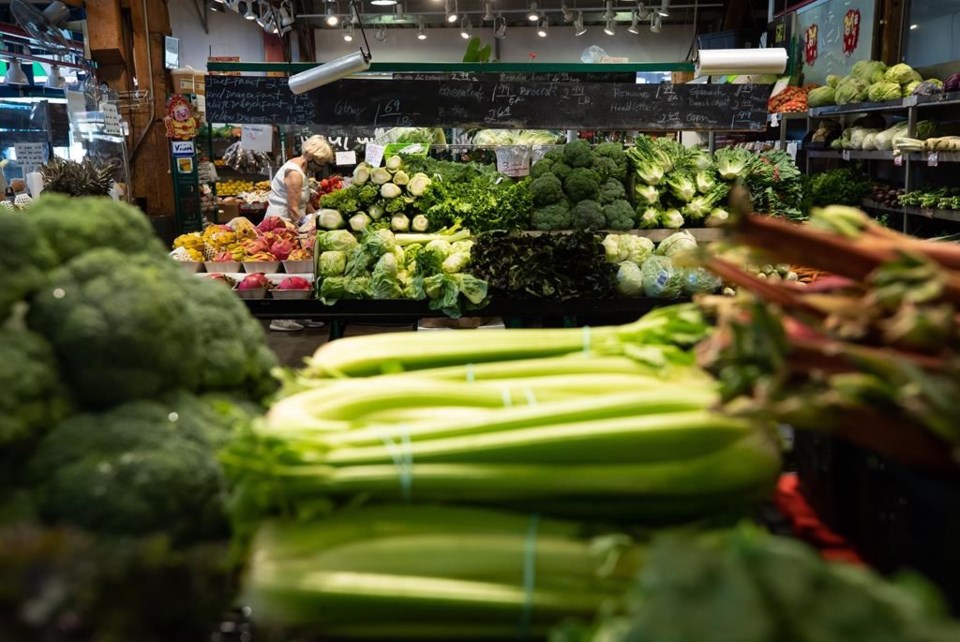The mere thought of grocery shopping causes so much anxiety for Jaimee Aragones that she avoids entering stores knowing she would return home without some food she can no longer afford for her kids.
Aragones said her husband has increasingly taken on the responsibility she once considered a "me time" break from their three- and six-year-old boys. On the rare occasion that she does help out, she "grocery hops" to at least three stores to get the best deals.
"Everything just adds up and I just get really frustrated and anxious," Aragones said from Richmond, B.C., where she works as a medical office assistant.
Despite the couple's efforts to stick with a budget, Aragones said constant money struggles about basic needs, including rent, make her feel "defeated."
She is also worried about how that stress could affect her kids, especially her older son who is told they'll have to "save that for later" when his favourite treats don't show up in the fridge.
Aragones said she considers the couple fortunate because they both have jobs but that she can't imagine the emotional impact on families who may have even less money for food.
On Monday, the Canadian Medical Association Journal (CMAJ) published a study saying that because of financial problems, children and adolescents under 18 in food-insecure Ontario homes made 55 per cent more visits to doctors for mental health reasons compared to those who had enough to eat.
The study used population health data on 32,321 children and adolescents and found that just over 16 per cent of them were living with food insecurity. Six per cent were marginally food secure, 7.3 per cent were from moderately food-insecure homes and 2.8 per cent were severely food insecure.
Lead author Kelly Anderson, associate professor of epidemiology and biostatistics at Western University, said while the data cover the years from 2005 to 2014, they are the latest to link Statistics Canada survey results about food insecurity with health records showing use of specific services such as visits to an emergency room or hospitalization for a psychiatric issue.
The study also showed that children and adolescents in food-insecure homes had a 74 per cent higher prevalence of hospitalization for a mental or substance use disorder. The most common reasons were for neurodevelopmental disorders, mood and anxiety disorders followed by social problems and other mental health issues.
Anderson said marginal, moderate and severe food insecurity ranges from whether people can afford balanced meals to whether they worry about running out of food, skipping meals or not eating for days.
It's time to move beyond quantifying such inequities to doing something about them with policies aimed at reducing chronic stress associated with food insecurity and mental health issues, said Anderson, who is the Canada research chair in public mental health research.
Dr. Lynn McIntyre, professor emerita of community health sciences at the University of Calgary's Cumming School of Medicine, said in a related commentary that there is no evidence to suggest food banks and other charitable programs, including at schools, have reduced household food insecurity.
In an interview, she said people who can't afford food are also more likely to skip on important medications for their children, potentially exacerbating their health problems.
She noted that other research into food insecurity, including by Statistics Canada and the Public Health Agency of Canada (PHAC), does not link food insecurity with health outcomes for children.
"One would have expected that they wouldn't be so chronic as some of the adults might have been to actually access acute-care services, the outpatient services."
However, the most vulnerable youth are not able to easily access mental health services, McIntyre said.
"These are the adverse experiences of childhood that really, sorely need to be prevented. And it's a societal obligation that we reduce this," she said.
"Mental health services are so hard to get for children that parents may be paying out of pocket for perhaps not the best quality alternative services, for providers that are not within the health system, because they are quite desperate."
Since the study period, a huge jump in food prices, especially after the pandemic, along with unprecedented rent hikes in much of the country, are leaving vulnerable families with even less money for groceries.
That means doctors should be advocating for basic income for their patients, just as they have been pushing for solutions to emergency rooms being filled with those who lack primary care, said McIntyre, adding that would also help slash overall health-care costs.
Income support is one of the most important determinants of health, and the findings from Ontario apply to much of the country, she said.
A so-called federal grocery rebate for low-income Canadians earlier this month was an example of a one-time payment that provided people with cash they could use to feed their families but regular support is needed, McIntyre said.
As for Aragones, her family was not eligible for the $467 paid to couples with two children because she and her husband earned just a few hundred dollars above the threshold.
"We're surviving," she said. "That's what I'm thinking of our situation right now."
This report by The Canadian Press was first published July 24, 2023.
Canadian Press health coverage receives support through a partnership with the Canadian Medical Association. CP is solely responsible for this content.
Camille Bains, The Canadian Press



